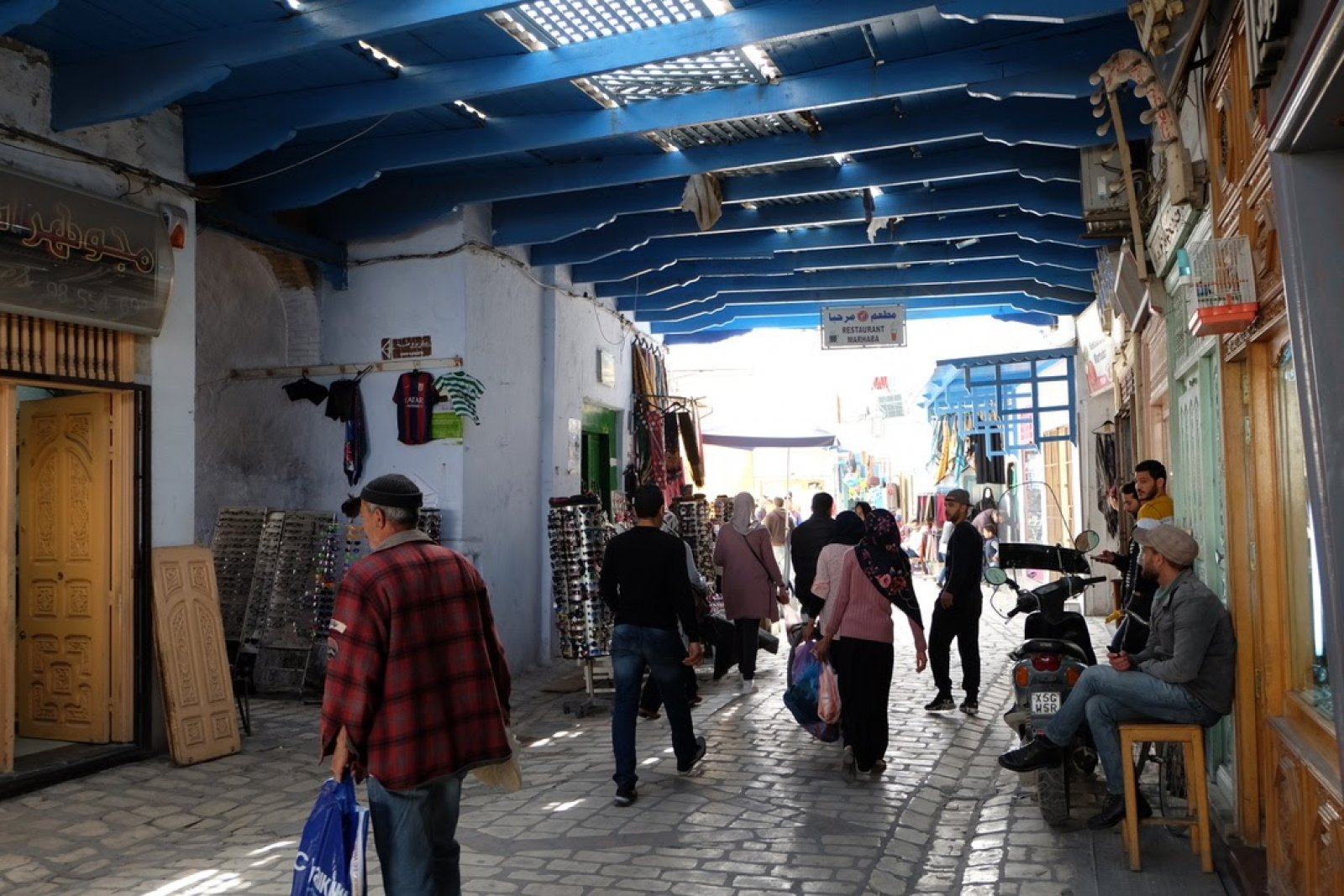
SHARE
The 2019 election cycle changed the face of Tunisian politics, ushering in many non-affiliated candidates and political outsiders into parliament, including the election of political outsider President Kaïs Saïed. By electing a new class of political leaders, Tunisian voters expressed their discontent with the status quo and their desire to empower new voices who could change the economic, political and social situation in Tunisia. But despite these changes, Tunisia has so far been unable to address its underlying economic weaknesses. GDP growth has continued to hover around 2 percent and the unemployment rate at around 15 percent, an economic stagnation that disproportionately affects the interior regions of the country. Inflation, despite the efforts of the Central Bank of Tunisia, remains at harmful levels for purchasing power and economic activity. As a result, the social landscape remains volatile. Citizens participate in demonstrations and social movements periodically to denounce the economic crisis, the lack of public and private investment, as well as the development gap between coastal and interior regions.
In response to these economic challenges and in the wake of the 2019 national elections, the National Democratic Institute (NDI) conducted a series of focus groups to highlight the expectations of citizens for their newly elected officials regarding economic issues such as: unemployment, sectoral reform, public enterprises, the informal economy, purchasing power and social security.
The majority of focus group participants expressed an overall negative perception of the country’s direction, a finding consistent with NDI’s past focus groups in Tunisia. However, many believe that there are various sources of hope, including President Kaïs Said’s national reform plans, national progress on expanding civil liberties and the success of past elections. Despite these positive strides, Tunisians remain concerned with the socio-economic challenges facing the country that directly affect their daily lives. Focus group participants demonstrated a wide breadth of knowledge concerning the economic issues affecting the country. While acknowledging the need to cater to economic reform to the specific needs of diverse regions across Tunisia, participants agreed on the main priority areas to stimulate economic growth. To capture these sentiments, this round of focus group research focuses on the challenges facing Tunisia’s economy, and participants’ proposed solutions to those challenges.
Shortly after the February formation of Tunisia’s new government, the country was forced to confront the global COVID-19 pandemic. While at the time of this publication Tunisia appears to have avoided the worst impacts of the health crisis, the economic and social effects of the pandemic are likely to have long-lasting and profound implications. While attitudes and aspirations expressed by Tunisians in this report predate the crisis, the issues raised have become even more pressing as the country looks towards post-pandemic economic recovery. The challenges explored throughout the report will likely be exacerbated by the effects of the crisis as well, making the survey participants’ proposed solutions even more relevant moving forward.
Download the full report here.
This research was performed by ELKA Consulting, a marketing and public opinion research firm based in Tunisia, and was generously financed with support from the United States Department of State’s Bureau of Near Eastern Affairs.


